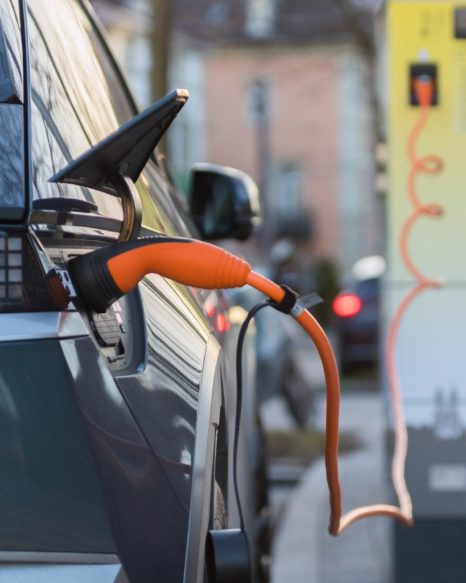Doctoral Candidate
Anke Kläver arbeitet am Forschungsinstitut für Nachhaltigkeit (RIFS) Helmholtz-Zentrum Potsdam und an der TU Berlin als wissenschaftliche Mitarbeiterin. Als Mitglied der interdisziplinären Nachwuchsgruppe EXPERI promoviert sie zur Gerechtigkeitsbelangen in der Verkehrswende. Dabei interessiert sie besonders die Schnittstelle von Verteilungs- und Verfahrensgerechtigkeit.
Vor ihrer Arbeit am RIFS und der TU hat Anke Kläver im Master politische Ökonomie an der Hochschule für Wirtschaft und Recht in Berlin studiert. In ihrer Masterarbeit analysierte sie die Beharrungskräfte der fossilen Automobilität, um deren gegenwärtige Hegemonie zu verstehen. Vor dem Hintergrund von Macht- und Herrschaftssystemen begleiten und prägen die Fragen nach der gerechten Gestaltung des sozial-ökologischen Wandels und nach individuellen und kollektiven Möglichkeitsräumen Anke Kläver nicht nur innerhalb des Studiums, sondern auch darüber hinaus.
Aktuelle Aufgaben:
- Seit 09/2020: Wissenschaftliche Mitarbeiterin und Doktorandin in der Forschungsgruppe EXPERI
Ausbildung:
- 10/2018- 11/2020 Master of Arts, Political Economy of European Integration, Hochschule für Wirtschaft und Recht
- 10/2014 – 10/2018 Bachelor of Science, Umweltwissenschaften & Volkswirtschaftslehre, Leuphana Universität Lüneburg
Publications
Fuder, M., Hagenbach, Y. Huemer, A., Kläver, A., Krause, J., Kühl, J., Pez, P., Schütte, L. (2023). Mehr Vielfalt im Radverkehr - entdecken - gestalten - vermitteln. Forum Mobilität - Schriftenreihe des Instituts für Verkehrsmanagement der Ostfalia Hochschule für angewandte Wissenschaften Braunschweig/Wolfenbüttel.
Kläver, A., Götting, K. (2023). Die Mobilitätswende moderieren - Gelingensbedingungen für demokratische Aushandlung auf kommunaler Ebene. Lokale Verkehrswende Aus Politik und Zeitgeschichte 51-52/2023.
https://www.bpb.de/shop/zeitschriften/apuz/lokale-verkehrswende-2023
Jarass, J., Nähring, A., Merzoug, S., Becker, S., Götting, K., Kläver, A., Czeh, A. (2021). Platz statt Kreuzung – Straßenraum neu denken: Mehr Aufenthaltsqualität im öffentlichen Raum als Treiber für die Verkehrswende. Internationales Verkehrswesen 4|2021, 18-22.
Forschungsinstitut für Nachhaltigkeit (RIFS)
Helmholtz Centre Potsdam
Berliner Straße 130
14467 Potsdam



